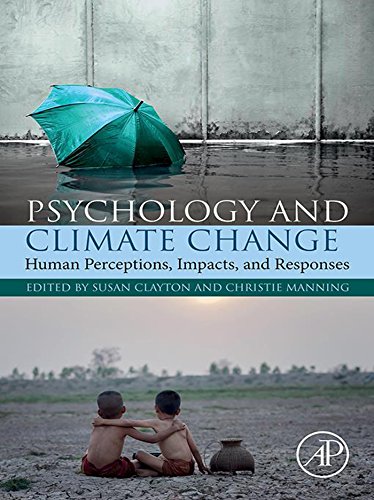

Most ebook files are in PDF format, so you can easily read them using various software such as Foxit Reader or directly on the Google Chrome browser.
Some ebook files are released by publishers in other formats such as .awz, .mobi, .epub, .fb2, etc. You may need to install specific software to read these formats on mobile/PC, such as Calibre.
Please read the tutorial at this link: https://ebookbell.com/faq
We offer FREE conversion to the popular formats you request; however, this may take some time. Therefore, right after payment, please email us, and we will try to provide the service as quickly as possible.
For some exceptional file formats or broken links (if any), please refrain from opening any disputes. Instead, email us first, and we will try to assist within a maximum of 6 hours.
EbookBell Team

4.0
76 reviewsPsychology and Climate Change: Human Perceptions, Impacts, and Responses organizes and summarizes recent psychological research that relates to the issue of climate change. The book covers topics such as how people perceive and respond to climate change, how people understand and communicate about the issue, how it impacts individuals and communities, particularly vulnerable communities, and how individuals and communities can best prepare for and mitigate negative climate change impacts. It addresses the topic at multiple scales, from individuals to close social networks and communities. Further, it considers the role of social diversity in shaping vulnerability and reactions to climate change.
Psychology and Climate Change describes the implications of psychological processes such as perceptions and motivations (e.g., risk perception, motivated cognition, denial), emotional responses, group identities, mental health and well-being, sense of place, and behavior (mitigation and adaptation). The book strives to engage diverse stakeholders, from multiple disciplines in addition to psychology, and at every level of decision making - individual, community, national, and international, to understand the ways in which human capabilities and tendencies can and should shape policy and action to address the urgent and very real issue of climate change.